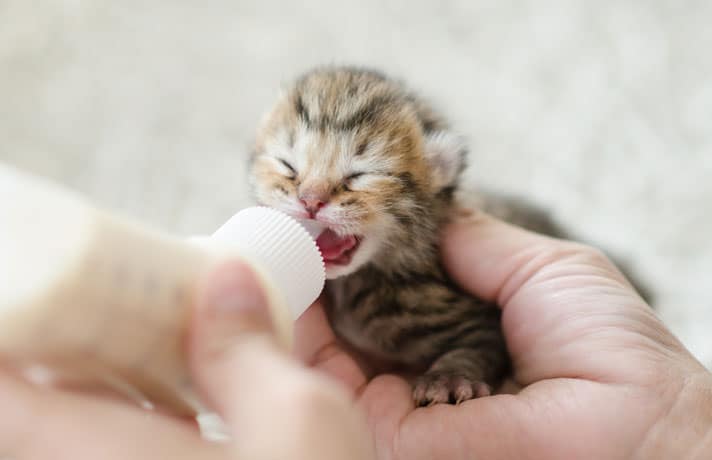If you keep a kosher home, does your dog or cat have to eat kosher pet food too? The answer isn’t as simple as a yes or no.
“Pets aren’t commanded to keep kosher—only humans are,” explains Rabbi Jason Miller, director of Kosher Michigan, a kosher certification agency in West Bloomfield, Michigan.
But even though Jewish law only applies to humans, there are certain non-kosher foods that Jewish people are not allowed to derive a benefit from. And that’s where kosher pet food comes in. We spoke to several rabbis to get clarity on what the rules are and put together a short list of kosher cat food and kosher dog food brands to buy if you keep a kosher home.
What Are The Rules on Feeding Kosher Pet Food
Again, your pets don’t need actual kosher food in the same way you do, notes Rabbi Zvi Goldberg, a kashrus administrator for over 20 years at Star-K Kosher Certification in Baltimore, Maryland. “Rather, pet owners who keep kosher are restricted from feeding certain types of food to their pets.”
There are two restrictions, according to Rabbi Goldberg:
- First, you can’t feed your pet foods that mix milk and cooked kosher meat, including goat, sheep, lamb and beef. If the food contains dairy or even whey, a byproduct of milk, as well as the meat, then it’s off limits for your pet. This applies all year long.
- The second applies specifically at Passover, the 8-day Jewish holiday in the spring that commemorates the freedom of the Jewish people from slavery in Egypt. During Passover, you can’t feed your pet chametz. Chametz essentially is leavened grains—including rye, barley, wheat, oats and spelt—and foods that have one or more of these grains, including pet food.
The reason these foods are restricted is that, according to Jewish law, Jewish people can’t derive benefit from chametz (or even have it in their house) during Passover nor can they benefit from dairy-and-meat mixtures during any time of the year. And yes, feeding your pet these foods is considered a benefit and is therefore not permitted.
“So it’s not because the pet needs to keep kosher, but because you're deriving benefit from it if you feed them to your pet,” explains says Rabbi Yosef Landa, the rabbinic coordinator of the Chicago Rabbinical Council, a kosher certification agency in Chicago, Illinois. “It’s the owner, the kosher-observant individual, who is violating the kosher rules by deriving benefit from the non-kosher pet food.”
What Is Considered Kosher Pet Food
As explained above, kosher dog and kosher cat food are essentially grain-free foods (at least during Passover) that don’t mix dairy and meat from cows, goats, sheep or lambs.
Not sure if a certain pet food qualifies as kosher? Here are some ways to find out:
- Look over the ingredients of your regular pet food brand. If it contains dairy (or whey) and any of the aforementioned meats, or—if it’s Passover—one of the chametz grains, skip it. Not sure about certain ingredients? Call a kosher certifying agency (like the ones mentioned in this article) to find out, suggests Rabbi Landa. “That’s what a lot of people do,” he adds.
- Look for a seal from a kosher certifying agency, which approve pet (and human) foods as kosher. If the pet food doesn’t have a seal, it will have a letter from the kosher certifying agency that you can request, says Rabbi Miller. Manufacturers may even post the letter on their website.
- Some certifying agencies, like Star-K, keep a list of kosher dog and kosher cat foods (as well as for other pets, including fish and rabbits). You can find Star-K’s list by going to the site’s Passover page, Rabbi Goldberg says.
Kosher Pet Food and Treats for Dogs and Cats
Read More
- The Drama-Free Way to Switching Your Dog or Cat to a New Food
- Puppy Feeding Guide: How Much to Feed a Puppy & More
- Do You Know How Much to Feed a Kitten? The Ultimate Guide to Kitten Food Portions
- So Many Options When It Comes to Feeding Fido. Which Is the Best Dog Food for Them?
- Hanukkah With Dogs and Cats: A Guide to Celebrating Safely With Your Pets
Share:













